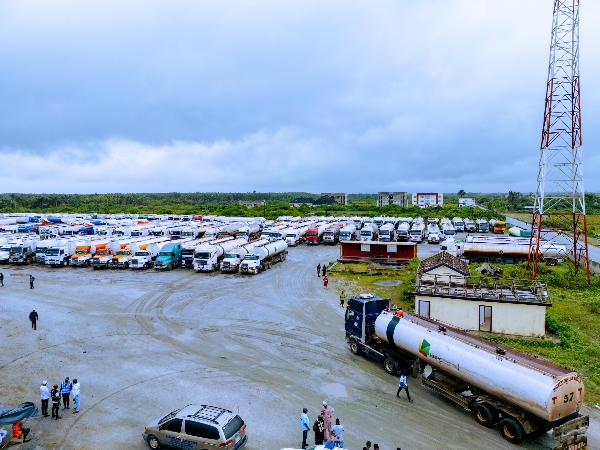The Nigerian National Petroleum Company Limited (NNPCL) has confirmed that it bought premium motor spirit (PMS), also known as petrol, from the Dangote Refinery at N898 per litre.
The purchase followed the deployment of approximately 300 trucks to the refinery’s 650,000-barrel-per-day facility in Lagos on Saturday, with loading commencing on Sunday.
Speaking to Daily Trust about the pricing, NNPCL’s Chief Spokesperson, Olufemi Soneye, clarified, “We successfully loaded PMS at the Dangote Refinery today. Contrary to claims that the price was N760 per litre, the correct price for this initial loading was N898 per litre.” He also noted that over 70 trucks had been loaded by the time of reporting.
The Minister of Finance and Coordinating Minister of the Economy, Wale Edun, had earlier announced that NNPCL would be the sole off-taker of refined petrol from the Dangote Refinery. Represented by Zacch Adedeji, Executive Chairman of the Federal Inland Revenue Service (FIRS), at a technical meeting on crude oil sales to local refineries, Edun confirmed that diesel from the refinery would be available for sale in Naira to any interested off-taker, while petrol would be sold exclusively to NNPCL for distribution to marketers.
The Federal Executive Council (FEC), under President Bola Tinubu, had approved a policy allowing crude oil sales to local refineries in Naira, with the corresponding purchase of petroleum products also to be settled in Naira. This move is aimed at reducing pressure on the local currency, eliminating unnecessary transaction costs, and enhancing the availability of petroleum products across the country.
Edun highlighted that starting October 1, 2024, NNPCL would supply the Dangote Refinery with about 385,000 barrels per day (bpd) of crude oil, to be paid for in Naira. In exchange, the refinery would supply PMS and diesel of equivalent value to the domestic market, also paid for in Naira.
“All associated regulatory costs, including those from the Nigerian Ports Authority (NPA) and Nigerian Maritime Administration and Safety Agency (NIMASA), will also be settled in Naira,” Edun added.
This development marks a significant step in the government’s efforts to stabilize the petroleum product supply chain and reduce forex pressures.


